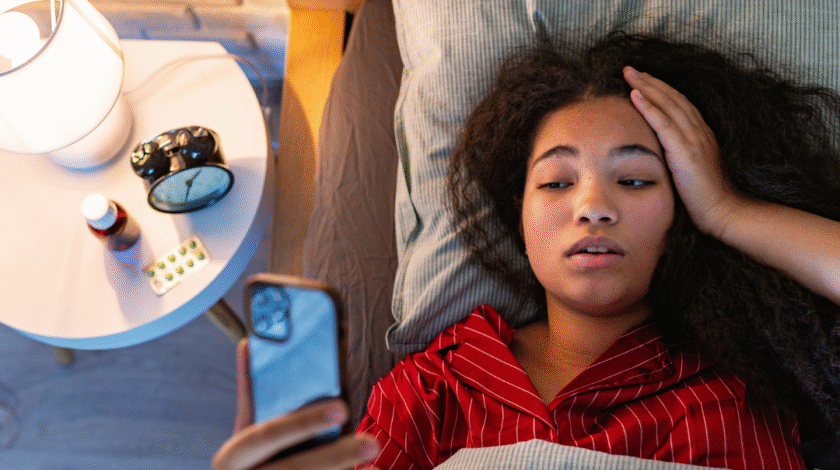Sleep hygiene plays a crucial role in achieving restful and restorative sleep. Implementing effective sleep hygiene tips can significantly improve sleep quality and overall health. Health coaches emphasize the importance of creating a consistent sleep schedule, maintaining a relaxing bedtime routine, and optimizing the sleep environment.
Many individuals struggle with sleep difficulties, often due to lifestyle choices and habits that compromise their sleep quality. By focusing on simple adjustments, such as reducing screen time before bed and ensuring the bedroom is dark and cool, it becomes easier to enhance sleep. These practical strategies can lead to more restful nights and invigorated days.
Effective sleep hygiene is not merely a set of rules but a pathway to better health and well-being. With guidance from health coaches, individuals can discover personalized solutions that suit their lifestyles while addressing specific sleep challenges. Adopting these strategies can foster lasting changes that enhance sleep quality and overall energy levels.
Fundamental Sleep Hygiene Tips From Health Coaches
Maintaining good sleep hygiene is essential for improving sleep duration and quality. Health coaches emphasize consistent habits, a calming bedtime routine, a suitable sleep environment, and regular sleep schedules for optimal sleep health.
Building Consistent Sleep Habits
Creating a regular sleep schedule is crucial. Going to bed and waking up at the same time every day helps regulate the circadian rhythm. This consistency reinforces the body’s natural sleep-wake cycle.
It is beneficial to limit naps during the day, especially in the late afternoon or evening. Short naps can help boost alertness, but longer ones may disrupt nighttime sleep. Incorporating physical activity into daily routines also enhances sleep. Engaging in regular exercise can boost sleep quality, though it’s best to avoid vigorous activity right before bed.
Setting a Relaxing Bedtime Routine
Establishing a calming pre-sleep routine signals the body that it is time to wind down. This may include activities such as reading, gentle stretching, or practicing mindfulness techniques.
Limiting exposure to screens at least an hour before bed is important. The blue light emitted by devices can interfere with melatonin production, making it harder to fall asleep.
Creating a wind-down period of 30-60 minutes allows the body to transition into a sleep-ready state. Incorporating relaxation techniques can significantly improve falling asleep.
Optimizing Your Sleep Environment
Creating a sleep environment that supports restful sleep is essential for overall well-being. A cool, dark, and quiet room typically promotes better sleep quality.
Maintaining a temperature between 60-67°F is ideal for most individuals, and this is often achieved through a properly functioning air conditioning system. To ensure the AC unit effectively regulates temperature and does not disrupt sleep, regular maintenance is necessary. Therefore, scheduling professional inspections and repairs with trusted providers such as Veterans AC & Heat in Tampa Bay helps keep systems running efficiently, ensuring bedrooms remain comfortable for a good night’s rest.
Beyond temperature control, investing in comfortable bedding and a supportive mattress significantly enhances sleep comfort. Proper pillows that align the head and neck contribute to improved sleep posture. Additionally, minimizing noise and installing blackout curtains further create an optimal environment for relaxation. To complement these measures, the use of a white noise machine can help mask disruptive sounds, promoting uninterrupted and restorative sleep.
Understanding Sleep Regularity
Maintaining sleep regularity involves sticking to sleep schedules even on weekends. Disrupting this rhythm can lead to “social jetlag,” affecting mood and cognitive function. Understanding individual sleep needs is vital. While some may thrive on 7 hours of sleep, others may require 9 hours for optimal function.
Monitoring sleep patterns with tracking devices can provide insights into personal sleep health. Recognizing trends in sleep quality can help individuals make necessary adjustments to their habits.
Lifestyle Choices That Impact Sleep Quality
Certain lifestyle choices significantly influence sleep quality. Factors such as caffeine and alcohol intake, screen time management, exposure to natural light, and physical activity play vital roles in determining how well a person sleeps.
Caffeine and Alcohol Consumption
Caffeine is a stimulant that can disrupt sleep patterns if consumed too late in the day. It is advisable to limit caffeine intake to the morning hours, especially for those sensitive to its effects. Even small amounts of caffeine in the afternoon can lead to decreased sleep quality at night.
Alcohol, while often viewed as a relaxant, can negatively impact sleep architecture. It may help people fall asleep faster, but it disrupts REM sleep, leading to increased awakenings during the night. Reducing alcohol consumption before bedtime can promote more restorative sleep.
Managing Screen Time and Technology
Exposure to screens before bedtime can interfere with sleep quality. The blue light emitted by phones, tablets, and computers can suppress melatonin production, making it harder to fall asleep. It is recommended to limit screen time at least an hour before bed. Instead of screens, consider engaging in calming activities, such as reading a book or listening to soothing music. These alternatives can help create a restful environment conducive to sleep.
Exposure to Natural Light
Natural light plays a crucial role in regulating circadian rhythms. Exposure to sunlight during the day helps the body discern day from night. This natural cycle supports better sleep quality and energy levels.
To optimize exposure, individuals should aim for at least 30 minutes of outdoor light daily. Morning sunlight is particularly effective in reinforcing the body’s internal clock, which can lead to improved overall sleep.
Physical Activity and Fitness
Regular physical activity contributes to better sleep quality by reducing stress and anxiety. Engaging in exercise can help individuals fall asleep faster and enjoy deeper sleep. It’s important to time workouts appropriately; intense exercise should be avoided close to bedtime.
Moderate activities, such as walking or yoga, can be beneficial even in the evening. These activities promote relaxation and prepare the body for a restful night’s sleep. Incorporating these lifestyle choices can lead to significant improvements in sleep quality, enhancing overall well-being.
Mental Health, Relaxation, and Recovery Strategies
Mental health plays a crucial role in sleep hygiene. Effective relaxation techniques and recovery strategies can enhance mood, reduce fatigue, and support overall well-being.
Relaxation Techniques and Meditation
Incorporating relaxation techniques can significantly improve mental health. Practices such as mindfulness meditation, deep breathing, and progressive muscle relaxation help lower stress levels and promote calmness.
- Mindfulness Meditation: Focuses on being present, allowing thoughts to pass without judgment. This practice can enhance emotional regulation and reduce anxiety.
- Deep Breathing: Engaging in deep breathing exercises lowers heart rate and promotes relaxation. A simple technique involves inhaling for four counts, holding for four counts, and exhaling for six counts.
- Progressive Muscle Relaxation: This technique involves tensing and relaxing muscle groups to release physical tension. It is effective in reducing stress and promoting a restful state.
Managing Stress, Depression, and Mood
Effective stress management is key to maintaining mental health. Recognizing triggers and developing coping strategies helps mitigate feelings of depression and mood swings.
- Identify Triggers: Keeping a journal can uncover patterns related to stressors. Understanding these triggers allows for proactive management.
- Exercise: Regular physical activity is proven to elevate mood and reduce anxiety. It stimulates the release of endorphins, enhancing feelings of well-being.
- Social Connection: Engaging with supportive friends or family can improve mood and mitigate feelings of loneliness. Support systems are essential for emotional resilience.
The Importance of Recovery for Performance
Recovery is essential for both physical and mental performance. Without adequate recovery, individuals experience fatigue, reduced cognitive function, and diminished mood.
- Sleep: Quality sleep is vital for recovery. Setting a regular sleep schedule can enhance the body’s restorative processes, improving both mental and physical function.
- Rest Days: Incorporating rest days into a training regimen prevents burnout and encourages overall well-being. Active recovery methods, such as light stretching or yoga, can also aid in this process.
- Nutrition: Proper nutrition supports recovery. Consuming a balanced diet rich in vitamins and minerals enhances energy levels and mood stability. Hydration also plays a significant role in cognitive function and emotional health.
Addressing Sleep Challenges and When to Seek Help
Sleep challenges can significantly impact one’s health and daily functioning. Recognizing the signs of sleep disorders, understanding the risks associated with sleep deprivation, and knowing when to consult a specialist are crucial steps to improving sleep quality.
Recognizing Sleep Disorders and Insomnia
Sleep disorders, including insomnia and sleep apnea, often manifest as persistent difficulties in falling or staying asleep. Individuals may experience fatigue, mood changes, and cognitive impairments. Insomnia can be classified into acute or chronic types, affecting daily activities and overall well-being.
Common symptoms of insomnia include:
- Difficulty initiating sleep
- Frequent awakenings
- Waking up too early
These signs indicate that it may be time to seek help. Undiagnosed sleep disorders can lead to complications, including heart health risks and decreased quality of life.
Understanding Risks of Sleep Deprivation and All-Nighters
Sleep deprivation, especially from frequent all-nighters, poses serious health risks. Chronic lack of sleep can lead to issues such as impaired judgment, mood swings, and diminished cognitive functions. Research has linked sleep deprivation to increased risks of heart disease and metabolic disorders.
Individuals should be aware of their sleep cycle and its significance in maintaining good health. Disruptions can lead to long-term effects on physical and mental health, underlining the importance of consistent sleep patterns.
Consultation With a Sleep Specialist
Consulting with a sleep specialist can provide targeted support for managing sleep disorders. Specialists are trained to assess and diagnose issues through sleep studies and comprehensive evaluations. They can suggest tailored treatments, which may include cognitive behavioral therapy for insomnia or lifestyle changes.
Seeking professional help is essential, especially if sleep disturbances significantly interfere with daily life. Specialists can provide insights into effective interventions and address specific concerns like sleep apnea or chronic insomnia.
Using a Sleep App for Tracking Progress
Sleep apps offer a practical tool for individuals aiming to improve their sleep. These apps can track sleep patterns, duration, and disruptions. They often include features like sleep scheduling reminders and relaxation techniques.
Some popular sleep apps provide insights into user behavior, allowing for informed adjustments. By monitoring their sleep progress, individuals can identify trends and problems, making it easier to communicate this information to healthcare providers when seeking help.


